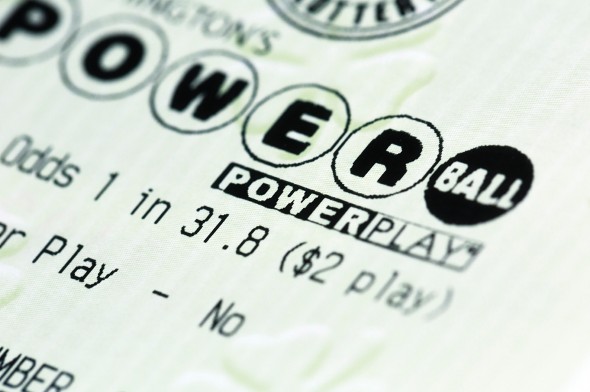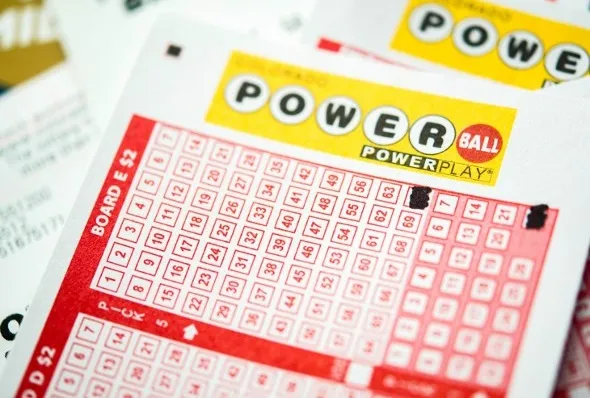If you’re reading this, chances are slim that you’ve ever won a lottery because the odds of winning are just so low. In 2021, Americans spent $105.26 billion on lottery tickets, making it the most popular form of gambling. That’s more than the total spending on music, books, sports teams, movies and video games combined. What do we get for all that money spent on the lottery and why do so many play if the odds are so low? We analyze the economics behind playing the lottery below.
Check out our budget calculator.
A National Pastime
Lotteries have a long history. They’ve been traced all the way back to ancient Rome and were used in Renaissance Europe to raise money for churches and other government projects. These days, lotteries are a controversial feature of American life. The recent Powerball lottery set records, coming in at a whopping $1.6 billion.
According to the North American Association of State and Provincial Lotteries (NASPL), 44 U.S. states and the District of Columbia offer lotteries. Over 100 other countries run lotteries. Lotteries come in a variety of forms, from instant-gratification scratch-off cards to the number games like Powerball.
Related Article: 5 Tips for Handling a Financial Windfall
Who Benefits From the Lottery
While Americans are generally allergic to high taxes, the high tax rates on lottery winnings haven’t provoked a public outcry. If you win over $600 in the lottery you’ll owe federal income taxes on that money. And if you’re the lucky winner of $5,000 or more, 25% will be withheld from your check for federal taxes before you even see your winnings. Depending on how much you win and on your income, you’ll then have to pay a further 14.6% to make up the total 39.6% that’s the top income tax rate at the federal level.
If you live in a state with a state income tax, you’ll owe those taxes as well. Some states with income taxes withhold lottery checks and some do not. If you’re the winner, be sure to budget some extra money for taxes in April after you get your check. (Note that for 2021, the tax deadline has been extended to May 17 because of COVID-19).
State Governments Win
State governments take in about a third of each lottery jackpot. How does this compare to revenue from corporate taxes? According to Reuters, “the 44 states with lotteries (plus the District of Columbia and Puerto Rico) get 44 cents from this form of gambling for each dollar of state corporate income tax.” At last count, there were 11 states in which lottery revenues exceeded revenues from corporate taxes. Some critics have pointed to this fact and argued that the tax burden is being shifted from wealthy corporations to poor individuals who buy lottery tickets.
Your odds of winning are better in some states than in others. Massachusetts is the state that returns the highest percentage of every bet, at 73%. According to the Tax Foundation, “state lotteries pay out an average of only 60 percent of gross revenues in prizes (compared to about 90 percent for casino slot machines or table games).”
After paying out prize money and covering operating and advertising costs, states get to keep the money that remains. In 2010, state lottery revenue came out to $370 for every resident of Delaware, $324 per capita in Rhode Island and $314 per capita in West Virginia.
Those inexpensive lottery tickets add up to serious funds. In 2021, California, Florida and Massachusetts took in over $25 billion combined in lottery income. New York’s lottery income topped $8.5 billion while Florida’s crossed the $9 billion mark.
Prize Money to Participants
To keep ticket sales robust, states have to pay out a respectable portion of sales in prize money. But of course, that reduces the percentage that’s available for state revenue and use on things like education, which is the ostensible reason for states to have lotteries in the first place.
Operational Costs
Though they’re a major source of government funds, lottery revenues are not as transparent as a normal tax. Consumers generally aren’t clear as to the implicit tax rate on the lottery tickets they’re buying. Though the question of whether to allow gambling and lotteries may come up in state elections, the question of how to use lottery revenue rarely does because the money is seen as “extra” money.
And of course, states have to pay money to operate and advertise lotteries. It’s not uncommon for states to pay high fees to private advertising firms to help them boost lottery ticket sales. For example, between 2003 and 2015, the state of Maine more than tripled its lottery advertising budget.
How Americans View the Lottery

Gallup polls have found that state lotteries are the most popular form of gambling in the U.S., with roughly half of respondents saying they purchased a lottery ticket in the past 12 months. With prices as low as $1 or $2 per ticket, the fondness for lotteries may seem harmless. Still, some have argued that lotteries prey on the economically disadvantaged, those who most need to stick to their budget and trim unnecessary spending.
Are lotteries really a “tax on the poor”? A 2014 Gallup poll found that 62% of Americans consider gambling “morally acceptable.” Meanwhile, 1 in 6 Americans reported gambling on professional sports. So is the lottery different? Research shows that higher-income Americans are more likely to engage in sports gambling, while their lower-income counterparts are more likely to buy lottery tickets or scratch-off lottery cards. Across income groups, those in their 20s and 30s are the most active lottery participants.
Some play the lottery because they want to win enough money to be able to quit their jobs. Would you quit your job if you won the lottery? The answer probably depends on how engaged you feel at work. A Gallup poll found that 40% of those who feel “actively disengaged” at work would quit their job if they won the lottery. 33% of those who feel “not engaged” would quit, while only 25% of those who feel “engaged” would quit their job if they won the lottery. For the record, experts advise that lottery winners avoid making drastic life changes soon after getting their financial windfall, so staying at work is probably the smart choice (at least in the short term).
Looking Ahead on Lotteries
What has changed since 1964, when New Hampshire became the first state to establish a lottery? For one thing, spending has boomed. And as the jackpots have grown, the lure of a big pay-out has drawn more ticket-holders. You likely know at least one person who never usually gambles who bought a Powerball ticket for the January 2016 record drawing.
The $70 billion Americans spend on lottery tickets translates to roughly $230 per person, including children, per year. That’s a lot of money that’s not being saved for retirement or used to pay off credit card debt. It’s also “more than 10% of the total state revenue in states’ collective budgets for fiscal year 2014,” according to the Pew Charitable Trusts.
It’s unlikely that the lottery trend will die down. State and local governments depend on lotteries to raise revenue that they can’t raise through ordinary taxes or bond sales. In today’s anti-tax climate, why would a state choose to replace raising lottery revenue with raising tax revenue when the former is a popular game and the latter is political suicide in many places?
Another question for the future is whether lotteries will expand to all 50 states. Currently, six states – Alabama, Alaska, Hawaii, Mississippi, Nevada and Utah – do not have state-run lotteries. The states of Nevada and Mississippi still take in substantial revenue from taxes on other forms of gambling. Alaska has traditionally had enough oil revenue to keep it solvent without resorting to a lottery, but attitudes may be changing now that the state is experiencing a budget deficit.
Expect the battle over state-run lotteries to continue. Organizations like Stop Predatory Gambling will continue to question the role of the state in promoting gambling, while others will argue that the lottery is a fun, voluntary way to raise state funds for education and other programs.
The elephant in the room is the fact that “people with a household income of less than $10,000 a year who play the lottery spend $597 a year on tickets,” according to the New York Times. That has led some analysts to propose more gamification of savings – in other words, making saving for an emergency or retirement more like playing the lottery.
Investing vs. Gambling
Many people liken investing to gambling because they are putting their money at risk for the chance to grow it substantially. There are some major differences though that typically make smart investing much safer than gambling if you’re looking to not lose your money over the long haul.
While there is an inherent risk to investing, it is still an activity that has proven to work over a long period of time. You may have short-term struggles if you’re investing in real estate or the stock market, but both have proven to increase over time for the last 100+ years.
Gambling, on the other hand, is essentially putting your money at risk with no real evidence of return. It is more entertainment than it is a strong opportunity to increase your money. This is due to many of the economic features of gambling, and playing the lottery, which requires the majority to lose in order to have a big winner.
The Bottom Line

Many people play the lottery every week in the U.S. and it contributes to billions of dollars annually. Some play for fun while others believe the lottery is their answer to a better life. The odds of winning the lottery are very low, which is why it should be considered more of an activity where you play for enjoyment rather than holding out hope that you will be the one that wins big. The economics of how the lottery works is not on the side of the one playing.
Tips for Investing
- Need a financial plan beyond just hoping to win the lottery? A financial advisor can help you make one that meets your long-term goals. Finding the right financial advisor doesn’t have to be hard. SmartAdvisor’s free tool matches you with up to three financial advisors who serve your area, and you can interview your advisor matches at no cost to decide which one is right for you. If you’re ready to find an advisor who can help you achieve your financial goals, get started now.
- One of the best ways to start building a strong financial future is by having one more multiple savings accounts. You can earn a little bit on your money while you save for a rainy day. Check out the best savings account rates available right now.
Photo credit: ©iStock.com/Catherine Lane, ©iStock.com/PeopleImages, ©iStock.com/nicolesy
